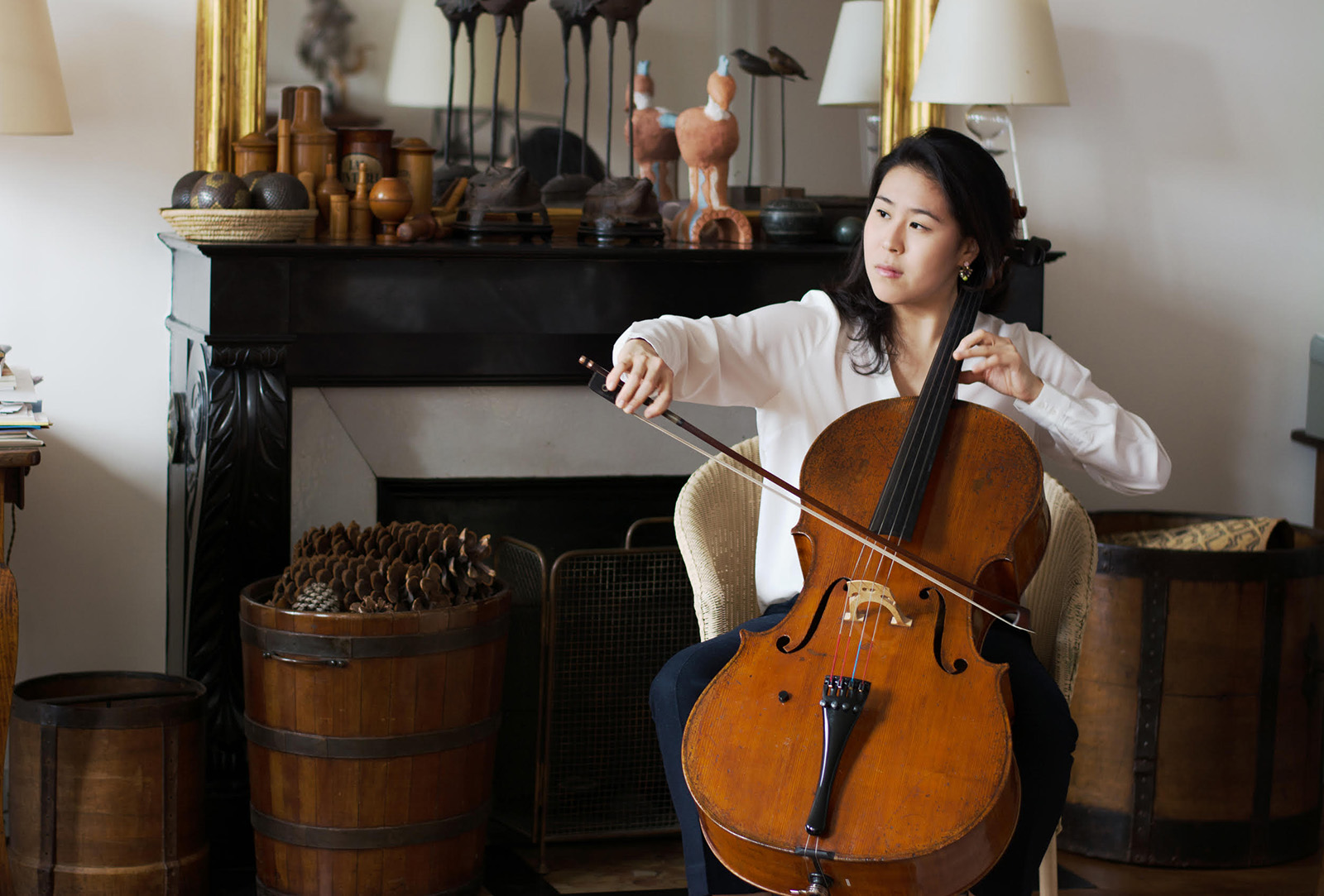Q&A: Cellist Deborah Pae talks upcoming master class at UCLA, career influences

Professional cellist Deborah Pae will lead a master class at UCLA’s Herb Alpert School of Music on Wednesday. Pae began playing the cello at the age of four, and has since played at the Grammy Awards and joined the internationally recognized Formosa Quartet. (Courtesy of Xiaoxi Wu)
Master class with Deborah Pae
Wednesday, April 17
Jan Popper Theater
Free
By Noor Ghatala
April 16, 2019 9:57 p.m.
Deborah Pae joined Juilliard’s Pre-College Division at just 7 years old, making her the youngest cellist to be enrolled at the time.
Pae has been playing the cello since she was 4 and at 13, she performed at the Grammy Awards in the presence of musicians like Alicia Keys and Ludacris. After traveling as a cellist, she joined the Formosa Quartet, an internationally recognized string quartet based in the United States. On Wednesday, Pae will lead a cello master class at the UCLA Herb Alpert School of Music, followed by a performance at Schoenberg Hall on Thursday.
Pae spoke with the Daily Bruin’s Noor Ghatala about her musical life trajectory and how she came to be the cellist she is known as today.
Daily Bruin: How did you become involved with the Formosa Quartet?
Deborah Pae: It was almost as if the Formosa Quartet found me. I was living and working in Europe before joining the quartet and I happened to be back in the States in New York and I suppose during that time they were looking for a cellist for quite some time. They asked me if I was willing to come to Chicago for a week to play some concerts with them, under the premise they were looking for a new cellist. And sometimes chemistry has a lot to do with it when you sit down and play music with three other people – the feeling, sometimes, is like magic. That’s what happened in Chicago, so we ended up establishing that I would be the next cellist in the quartet and I was very honored to be invited.
[RELATED: Conductorless orchestra trades hierarchical structure for collaboration]
DB: What do you enjoy most about performing?
DP: I feel incredibly fortunate to do what I do, being a musician. Even though I play the cello, it has allowed me to connect with a lot of incredible people all over the world and to travel to countries that I never thought I would ever go to, right, and to learn about cultures I never experienced before. I think it is through music and through art and through culture that you end up kind of building these incredible communities. I don’t know if that’s unique to me, I just think it is incredibly unique to what I do and I am able to do that 365 days a year.
DB: Which of your works are you most proud of?
DP: Well, it was kind of two parts: The Recording Academy at the Grammy Awards had invited me to perform at the Lifetime Achievement Award for a legendary cellist, Mstislav Rostropovich. He was a huge influence on me – the fact that I got to be there at one of the top moments of his career. He was receiving a Lifetime Achievement Award and I could be one of the performers at such a young age. And then two days later, I actually played at the Grammy Awards at Madison Square Garden. That was really, really cool. I just remember hearing Alicia Keys, Nora Jones and John Mayer perform and sitting two rows away from Ludacris. As a 13-year-old, you are just starstruck. It was a really great excuse to miss school that day.
DB: Did you have any early inspirations or people you looked up to?
DP: A lot of people. It’s hard, there have been a lot of people. You don’t do it alone, you can’t get to a certain point of your career just by yourself. Some of my biggest inspirations right now, the individuals who are having a huge impact on me and my work, are the empowering women in my life that are showing up, taking risks and being incredible leaders in their respective fields – the arts, business, sciences, et cetera. That’s basically one of the reasons why I teach today – giving back because you know when someone recognizes a great amount of potential in you, even before you see it yourself, that’s a very powerful thing. Now the quartet and I are in a position to do that for the next wave of young musicians and young artists.
[RELATED: Cultural harmony found in concert with Russian String Orchestra, UCLA composers]
DB: What do you hope to teach the students who attend this event? How do you plan to teach those ideas to them?
DP: The students and faculty at UCLA are already so wonderful. So it may be that we are going to be exchanging ideas. It’s not like I am going to reinvent the wheel. I think what I love about mentoring, it’s really about exchanging ideas. For me it’s not about maybe telling them something new, it’s just putting it into a perspective that might help improve the performance or their ability to play more technically at ease or realize that (there) might be something musically happening that they haven’t realized before. I’m very excited to work with the students this week.


